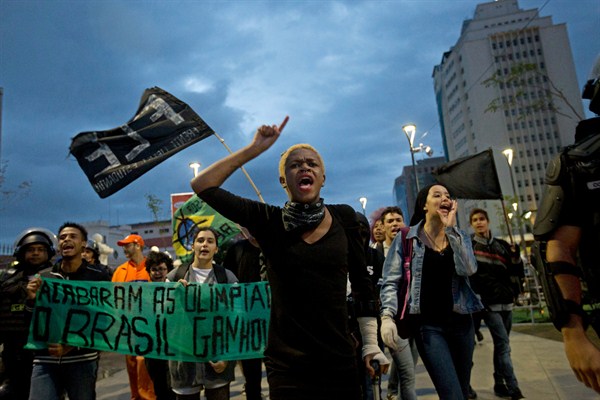The paint around the front doors of the law building at the Federal University of Rio de Janiero (UFRJ) is flaking, but the inside remains pristine. Yellow walls stretch upward to meet high ceilings, while sizeable busts and oil portraits of the faculty’s founders stare watchfully on. But recently, they have been watching something unusual. Every evening since early November, 25 students have been sleeping in tents inside the faculty building in protest of a constitutional amendment, PEC 55, which was being reviewed by the government. On Dec. 13, it was approved, sparking protests across the country.
Brazilians, and especially students, have reason to be angry. PEC 55 will effectively freeze social spending by fixing budgetary increases to social-assistance programs to inflation, rather than GDP, for the next 20 years, severely impacting public health and education. The United Nations’ special rapporteur for extreme poverty and human rights, Philip Alston, condemned the measure, saying that it “will place Brazil in a socially retrogressive category all of its own.” With public high schools responsible for educating 80 percent of Brazilians, and poorer Brazilians particularly dependent on public-education networks, the measure is a huge obstacle to reducing social inequality.
“You have to make cuts, but health and education shouldn’t be the first things to go,” says Mariana Gomes da Rocha, one of the students who have been spending their nights in the building.

